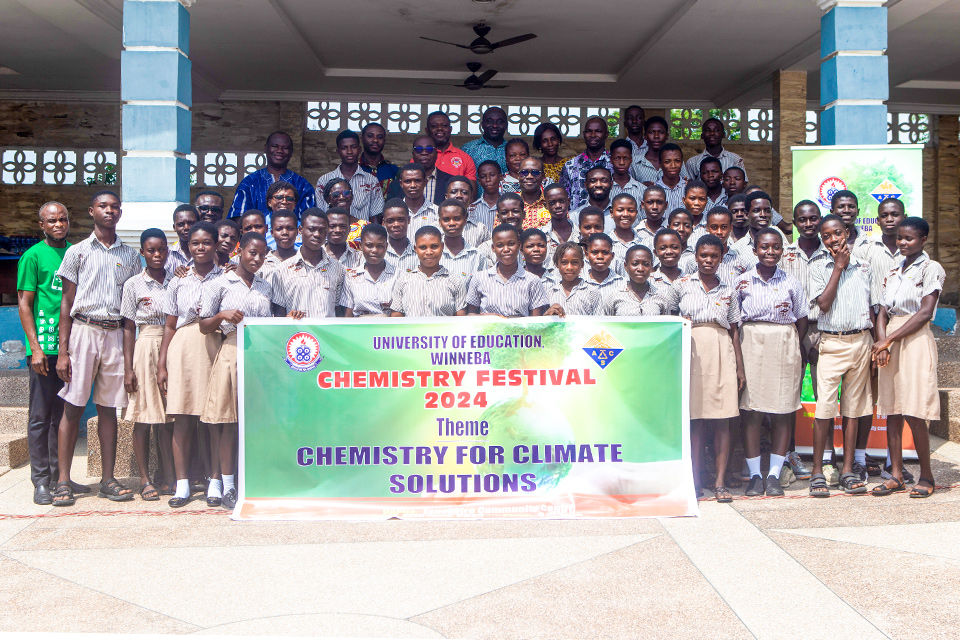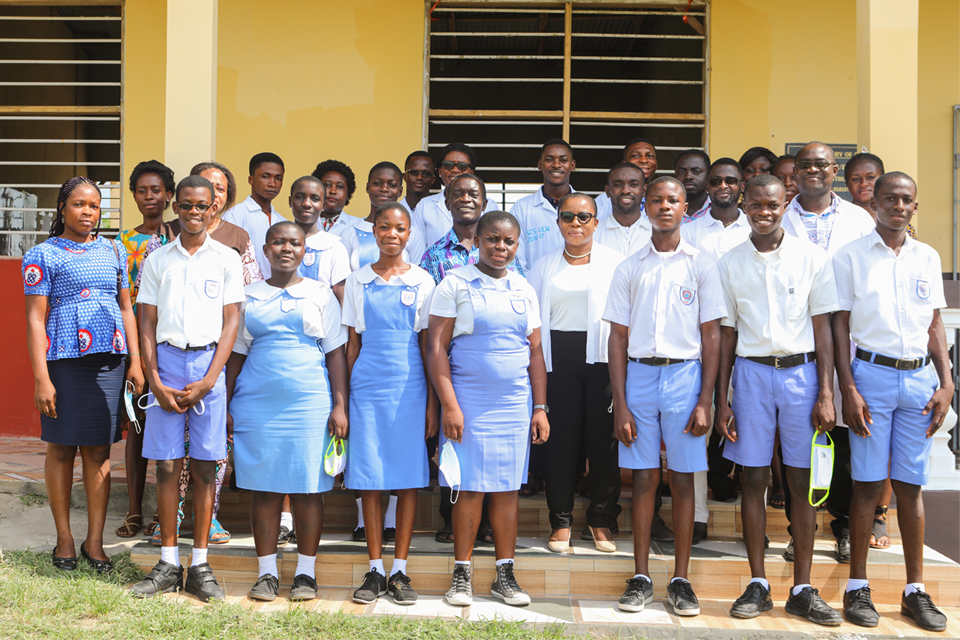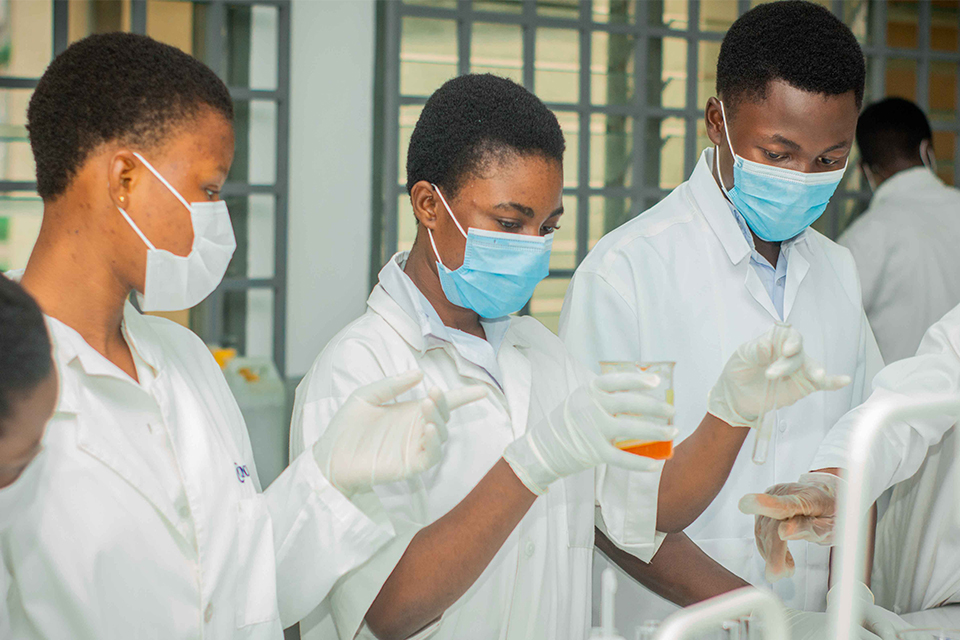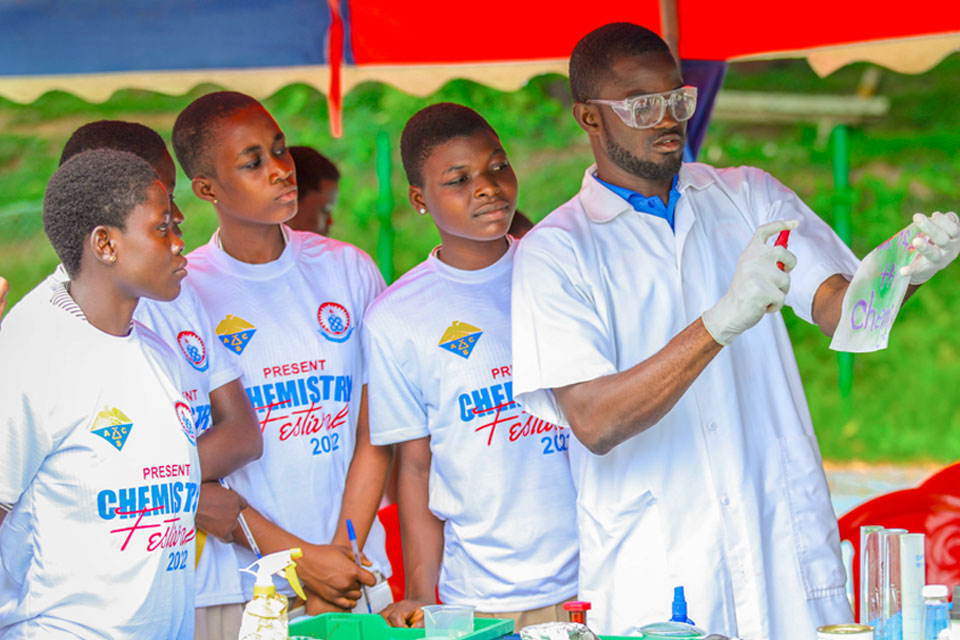DCE-UEW Outreach Project Advocates for Sustainability Through Indigenous Chemistry
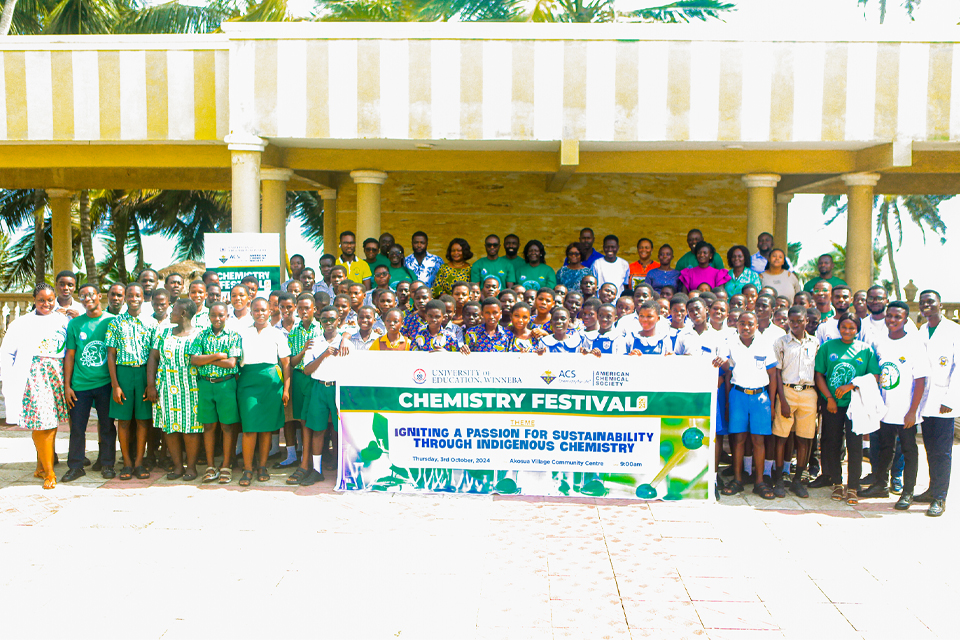
The Department of Chemistry Education (DCE) at the University of Education, Winneba (UEW) recently hosted a groundbreaking chemistry outreach project that focused on sustainability from the perspective of indigenous chemistry.
The event, which took place at the Akosua Village Community Centre, was themed “Igniting a Passion for Sustainability Through Indigenous Chemistry.” The event provided a unique platform for selected junior high school students to explore the chemistry behind every day phenomena, seamlessly integrating with their academic syllabus.
The outreach programme, which garnered significant attention from educators and students, showcased the practical applications of chemistry in various facets essential to daily life. Participants were introduced to natural water purification methods, demonstrating how fundamental chemistry principles can address critical environmental concerns. Furthermore, the session on Indigenous chemistry in palm soup preparation highlighted traditional culinary practices, offering insight into the chemical processes inherent in local gastronomy.
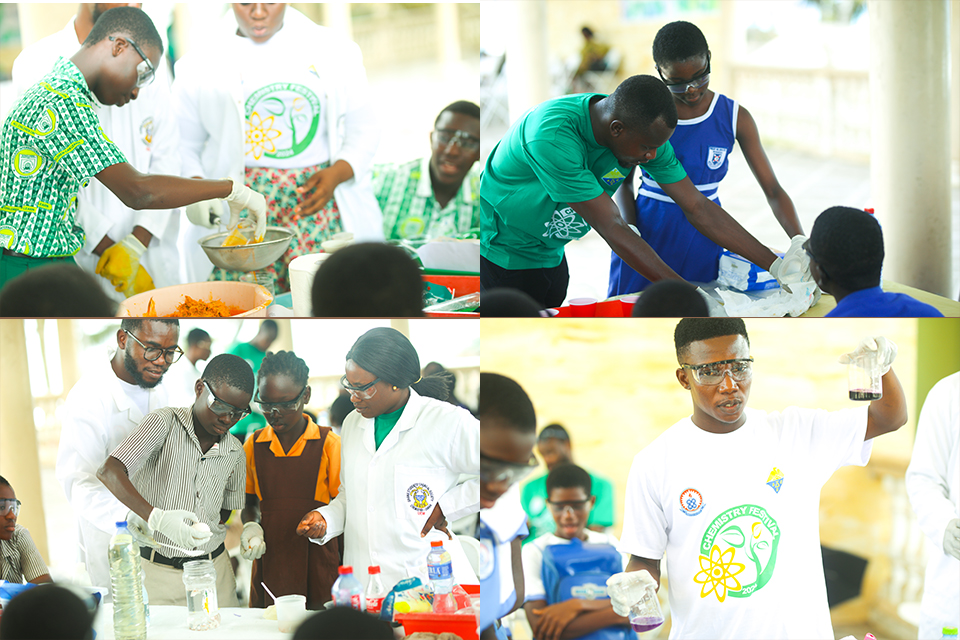
The students were thoroughly engaged by an informative presentation on the extraction of natural dyes. This showcased the application of chemistry in producing sustainable and eco-friendly dyes derived from natural sources such as turmeric, beetroot, and watermelon. An examination of ocean acidification provided valuable insights into the adverse environmental consequences stemming from chemical changes. This underscored the critical importance of embracing sustainable practices to alleviate those effects.
Finally, the students analysed the chemical composition of diapers, unveiling the scientific principles governing everyday sanitary products and igniting an interest in potential enhancements to their environmental footprint.

Dr. Ernest Koranteng, a lecturer at DCE-UEW and project coordinator, emphasised the significance of sustainability and environmental conservation in his welcome address and the purpose of the outreach programme. He underscored that the event aimed to promote chemistry concepts and principles in everyday life, highlighting the urgent need to protect the environment. "Sustainability is about our very existence on earth; we must maintain the environment that we live in, the resources that we have," he stressed.
Dr. Koranteng underscored the detrimental impact of illegal mining on water bodies and the environment, emphasising the imperative of safeguarding natural resources for future generations. He urged students to cultivate curiosity, pose enquiries, and glean insights from shared experiences. Stressing their role as stewards of sustainability, he designated the students as ambassadors for the future.
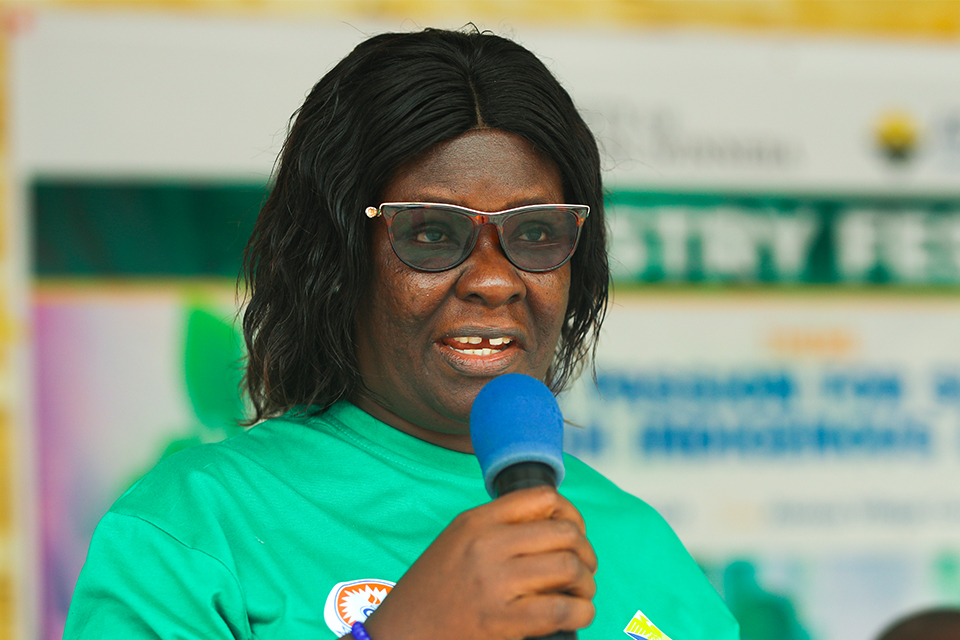
Prof. Ruby Hanson, a chemist, and the chairperson of the event, underscored the pivotal role of indigenous chemistry in advancing sustainability and environmental conservation. She said, "Indigenous chemistry elucidates the notion that sustainability transcends traditional classroom science, emphasising instead the imperative of cherishing and harnessing our local resources."
Prof. Hanson underscored the imperative for young scientists to leverage their scientific knowledge to address environmental challenges, notably illegal mining and beach pollution. She posed the enquiry, "How can we, as burgeoning science scholars, contribute to enhancing our environment for future generations?" and urged participants to exchange ideas and utilise local resources for experimentation. She expressed appreciation to the organisers, educators, and volunteers for their steadfast commitment to nurturing the forthcoming cohort of chemists and environmental advocates.
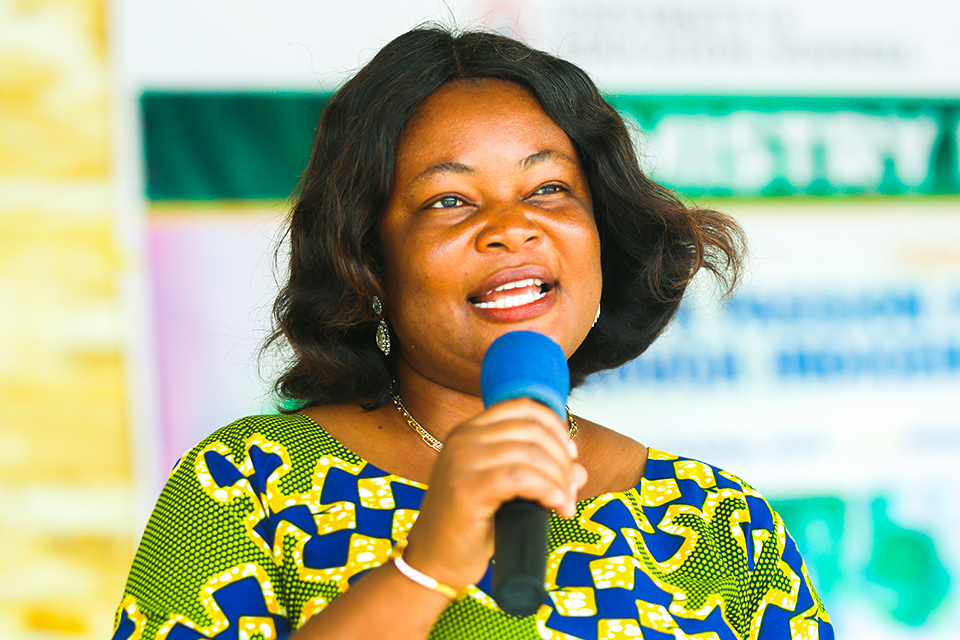
Ms. Caren Dedoo, the Effutu Municipal Science Coordinator, highlighted the outreach programme's impact on nurturing students' interest in chemistry. She stressed the importance of science education for those aspiring to become teachers, nurses, doctors, or laboratory technicians, advising them to prioritise their studies.
The event not only adhered to educational curricula but also prompted young learners to engage in critical thinking regarding the role of chemistry in sustainability. Through an exploration of both traditional and modern practices, the DCE-UEW Chemistry Festival has established a model for educational events dedicated to cultivating an understanding of chemistry in the context of practical and sustainable living.









